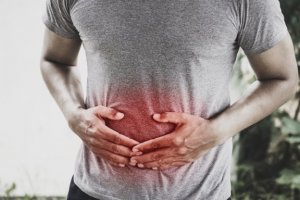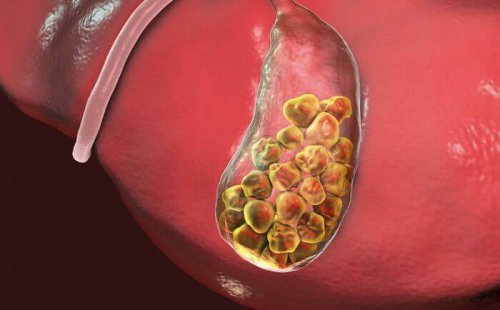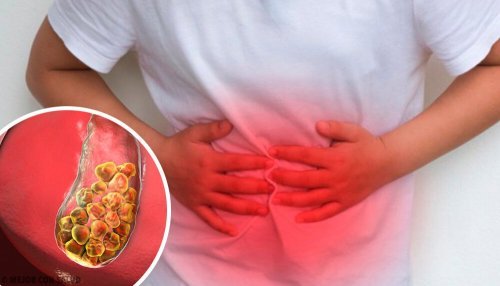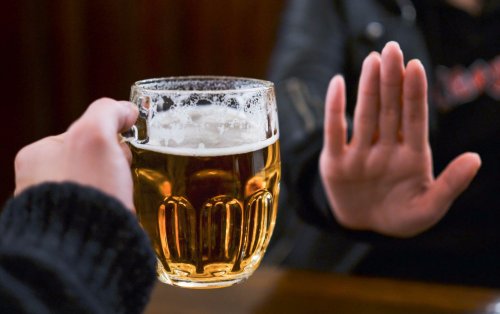What Foods Should You Eat if You Suffer from Gallstones?


Reviewed and approved by the pedagogue in physical education and nutritionist Elisa Morales Lupayante
Gallstones can take time in diagnosing because of their symptoms. While you may not think you will ever suffer from gallstones, it’s important that you learn about this condition and how to cope with it.
The gallbladder is an organ in the digestive system. It’s located close to the abdominal cavity just under the liver, which is on the right side of the body.
While it’s small, the gallbladder plays an important role in the healthy functioning of the body. Its main function is storing bile, a liquid that is necessary for digestion.
This article will explore the causes of gallstones and what dietary elements can help prevent and eliminate them.
Gallstones

Shown in the image above are the crystals or deposits that lodge themselves in the gallbladder. This situation causes discomfort when they become larger.
Their dimensions vary greatly. The smallest ones can be as small as a grain of sand, while they can be as large as a golf ball.
Symptoms of Gallstones
Symptoms of gallstones can be difficult to detect because the symptoms are often confused with indigestion. Some symptoms include:
- Pain when inhaling deeply.
- Abdominal cramps.
- Pain in the right side of the chest that can expand to the right shoulder or even the back.
- Nausea and vomiting.
- Fever that usually appears when there is already an infection.
- Flatulence or gas.
- Pale stool.
- Jaundice, or a yellowing of the skin due to the retention of bile.
The Causes of Gallstones
There are different causes of gallstones. For instance:
- When cholesterol, calcium bilirubin, or calcium carbonate crystallize or harden.
- Obesity, because cholesterol gets secreted into the bile.
- A sedentary lifestyle with a diet high in calories and carbohydrates. This can cause a person to become overweight and unhealthy.
- Fasting diets, or those that help you lose a lot of weight in a short amount of time. This sudden change can cause gallstones to develop or cause gallstones that have already formed to become larger and more problematic.
Discover: Try this Effective Diet to Reduce Bad Cholesterol
Some Facts about Gallstones

According to one study, in Western countries, 10% to 20% of the population suffers from gallstones.
In addition, some cases show no notable symptoms, where complications can arise in other cases. Another interesting fact is that, according to research, females who are older suffer from gallstones more than any other demographic.
Foods to Eat for People Who Suffer from Gallstones
Eating a balanced diet is essential for overcoming any gallbladder problem. It can be easy to modify or change certain aspects of your diet to alleviate gallstones and their symptoms.
Some foods to include in your diet include:
- Any vegetables. They’re better if they are cooked, because it makes digestion easier.
- Fruit, except for coconuts and avocados.
- All whole grains because they’re rich in fiber. Consider whole grain pasta, rice, or whole grain bread.
- Low-fat Meats. The best way to cook them is on the grill, and if the meat is chicken, it’s best to cook it without the skin.
- Skim milk.
- Water.
- Natural, freshly-squeezed fruit juice.
Any of the foods listed above should be steamed or grilled since you should be trying to eliminate fats from the diet.
Therefore, foods with a high fat content should be excluded from your diet, such as:
- Fatty meats: sausage, ribs, duck, or goose meat.
- Fatty fish: sardines, salmon, or tuna.
- Oily nuts: almonds, nuts, peanuts, or chestnuts.
- Whole milk, fatty cheeses, yogurt, or cottage cheese.
- Organs: kidney, heart, liver, or intestines.
- Animal fat.
- Alcoholic drinks.
- Desserts: cookies, cake, chocolate, pastries, etc.
- Prepared sauces and condiments like ketchup.

We also recommend: Five Tips to Improve Your Liver and Gallbladder Function
How Can You Prevent Gallstones with Your Diet?
A balanced diet is key to staying healthy and can help prevent any disease. Here are some extra tips on diet and lifestyle to avoid gallstones:
- Eat monounsaturated fats like olive oil in moderate portions.
- Eat lecithin. It helps keep cholesterol levels low. It can be found in 100% cocoa or dark chocolate, eggs, soy, and milk.
- Drink turmeric tea. Curcumin is an antioxidant that helps with digestion and liver metabolism, reduces inflammation, and prevents the formation of gallstones.
- Exercise. Avoiding a sedentary lifestyle helps keep the body generally healthy and avoid obesity and the problems that come with being overweight.
Finally, it’s important to consult a doctor or specialist if you have any of the above mentioned symptoms or if you think you have gallstones. It’s always better to be safe than sorry.
All cited sources were thoroughly reviewed by our team to ensure their quality, reliability, currency, and validity. The bibliography of this article was considered reliable and of academic or scientific accuracy.
- Lammert F, Gurusamy K, Ko CW, Miquel JF, Méndez-Sánchez N, Portincasa P, van Erpecum KJ, van Laarhoven CJ, Wang DQ. Gallstones. Nat Rev Dis Primers. 2016 Apr 28;2:16024
- Shabanzadeh DM. Incidence of gallstone disease and complications. Curr Opin Gastroenterol. 2018 Mar;34(2):81-89.
- Martínez García RM, Jiménez Ortega AI, Salas-González MªD, Bermejo López LM, Rodríguez-Rodríguez E. Intervención nutricional en el control de la colelitiasis y la litiasis renal [Nutritional intervention in the control of gallstones and renal lithiasis]. Nutr Hosp. 2019 Aug 27;36(Spec No3):70-74.
This text is provided for informational purposes only and does not replace consultation with a professional. If in doubt, consult your specialist.








